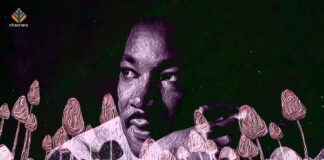Morals Will Always Outweigh Unjust Laws
Ayanna Bell's commentary explores the relevance of Martin Luther King Jr.'s "Letter from Birmingham Jail," highlighting his distinctions between just and unjust laws. It critiques the "white moderate" mindset, exemplified by President Biden, and identifies current unjust laws, particularly the criminalization of psilocybin, which perpetuate systemic racial injustices and cultural erasure.
Navigating Everyday Struggles: The Journey of People of Color Confronting Racial...
Confronting racial microaggressions can be a daunting, everyday struggle for people of colour, but researchers have found that having a strong sense of self and knowledge of one's ethnic identity can help mitigate the effects of racism.
The Roots of Radicalization: Understanding the Power of Discrimination
Stopping radicalization requires addressing the societal injustices and discrimination that are at the root of these radical movements. By employing rigorous qualitative research methods, including in-depth interviews with former militants of groups such as ISIS, this study provides a nuanced understanding of the pathways to radicalization.
Unlocking Bias: Racial Inequity in Psychological Science
Bias in the peer review process is common. Racism infects every stage of the knowledge dissemination pathway. As scholars committed to addressing racism in academia, the authors recognize the discomfort that comes with confronting entrenched biases. Yet, it is only by acknowledging and challenging these biases that we can begin to create a more inclusive and equitable scientific community.
Exposing Legal Violence: The Impact of Regulations on Thai Massage Businesses...
Krittiya Kantachote argues that regulations on Thai massage businesses in Los Angeles can be labeled as a form of legal violence. The findings of this study challenge previous notions of legal violence, which have often been linked solely to immigration law. By expanding the concept to include a broader range of situations, the study underscores the comprehensive nature of legal violence and its impact on both undocumented immigrants and legal residents.
The Heart of Activism: Understanding Support for Black Lives Matter
Understanding support for Black Lives Matter requires analysis of individual journeys into anti-racism action. These researchers embarked on a journey into the hearts and minds of 359 undergraduates who felt the pulse of BLM. Their mission? To decipher the intricate web of motivations woven into the fabric of support.
Hong Kong’s Glass Ceiling: Access to Higher Education for Underprivileged Students
Institutional hierarchies are pervasive in the Hong Kong higher education system, which perpetuate educational disparities among Chinese and other marginalized students. This study argues that addressing systemic barriers, fostering home-school collaboration, and providing tailored support are crucial steps in leveling the playing field for underprivileged students.
Caste Consciousness, a Lingering Presence: Global Discrimination and Psychological Impact
India's caste system has spread across the globe with the South Asian diaspora, making the psychological toll of the system a global issue. By delving into its historical roots, contemporary manifestations, and psychological implications, scholars can glean valuable insights into the complexities of systemic discrimination and the pursuit of social justice.
Bad Faith.
Bad faith and racial oppression go hand in hand. One of the consequences of this pairing is the high incarceration of Black men. Black men have long rejected the false narratives imposed upon them, challenging the status quo and demanding recognition of their humanity. Through acts of truth-telling and collective mobilization, they seek to dismantle the structures of oppression that have constrained their existence.
Building Healthy Connections: Nurturing Intimacy Through Empowered Vulnerability
Empowered vulnerability requires the fostering of social environments that support intimacy rooted in consent. By championing this kind of environment the Louisiana Contextual Science Research Group paves the way for a more inclusive and fulfilling approach to intimacy in both theory and practice.














